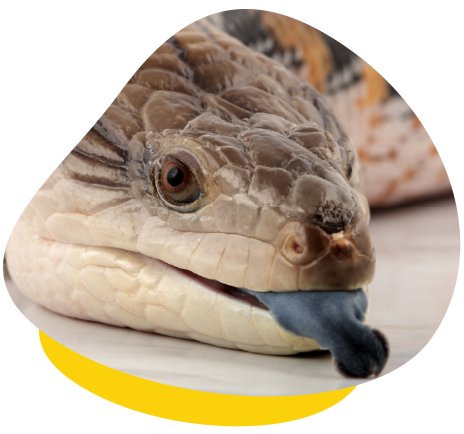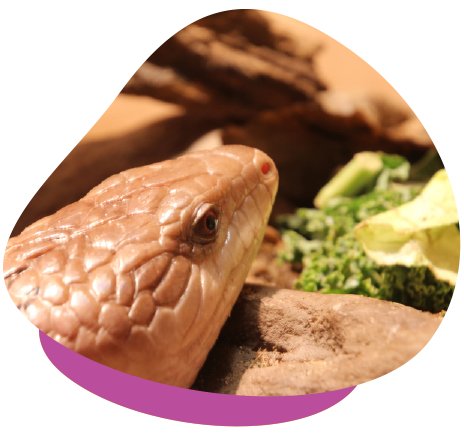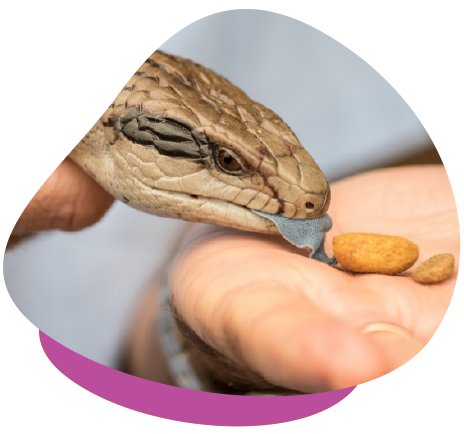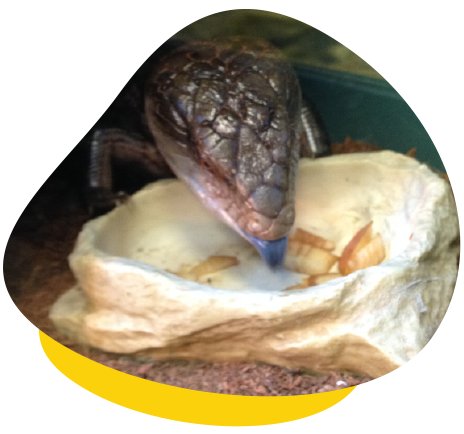Blue-tongue lizards, also known as blue-tongued skinks, are fascinating reptiles that have captured the hearts of many reptile enthusiasts. These omnivorous creatures have a diverse diet that includes both vegetables and animal protein. In this article, we will explore the dietary requirements for blue-tongue lizards and provide valuable insights into their feeding habits.
Dietary Requirements for Blue-Tongued Skinks:
Blue-tongued skinks have different dietary needs at different stages of their lives. Juveniles require a higher proportion of animal protein, while adults should consume a larger portion of plant matter. As a general guideline, adults can be fed every one to two days, while juveniles benefit from daily feeding.

Vegetables
Vegetables form a significant part of a blue-tongued lizard’s diet, accounting for about 45-60% of their food intake. Dark, leafy greens such as mustard greens, kale, dandelion, endive, romaine lettuce, beet tops, bok choy, and collard greens are excellent choices. Additionally, grated carrots, pumpkin, squash, and zucchini can be included to aid in digestion. However, it is important to note that fruits should only be given occasionally as treats, as they can lead to dental issues if overconsumed.
Animal Protein
Animal protein sources are essential for blue-tongued skinks, especially during their early stages. Additional protein sources such as farm-raised snails, earthworms, gut-loaded crickets, black soldier fly larvae, and mealworms can be offered. These protein sources should be dusted with a calcium carbonate source to ensure proper nutrition. Additionally, the occasional frozen-thawed pinky mouse can be offered to adult blue-tongue lizards.
While a portion of the diet can be supplemented with formulated food made specifically for lizards, it is important to ensure that it does not exceed 25% of the total diet. The majority of their nutrition should come from fresh vegetables and protein sources.
Can You Feed Blue-Tongue Lizards Dog Food?
The use of wet dog food as a part of a blue-tongue lizard’s diet is a subject of debate. Both dogs and blue-tongued skinks are omnivorous, leading some reptile owners to consider dog food a suitable option. However, it is crucial to exercise caution and only include a small portion of dog food in the overall food intake of your lizard. High-quality, nutritionally balanced options should be chosen, and it is advisable to consult with a reptile veterinarian for guidance.


Feeding Guidelines and Tips
Feeding your blue-tongue lizard goes beyond providing the right types of food. It is essential to maintain proper proportions and offer high-quality, nutritious options. A practice known as “gut loading” is recommended, where the insects fed to your lizard are given a nutrient-rich diet for 12-24 hours before feeding. This maximises the nutrition transferred to your lizard.
For adults, the gut-loaded insects can be lightly dusted 2-3 times per week with a calcium powder that does not contain Vitamin D or phosphorus. It is important to offer the dusted insects immediately after dusting to maintain the ideal calcium-phosphorus balance. Alternatively, a prescribed dose of liquid calcium supplement can be administered.
Feeding should ideally occur in the mornings to allow for digestion during the warmest part of the day when blue-tongue lizards are most active. A multivitamin powder can be sprinkled on the vegetables every one to two weeks, but this is often unnecessary with a well-balanced diet.
Lastly, providing fresh, clean drinking water for your blue-tongue lizard daily is crucial. Hydration is vital for their overall health and well-being.
Blue-tongue lizards have diverse dietary requirements, encompassing a mixture of vegetables and animal protein. Ensuring a balanced and nutritious diet is crucial for their health and longevity.
Following the guidelines in this article and consulting with your Unusual Pet Vets team, you can provide your blue-tongue lizard with a well-rounded and nourishing diet that supports their optimal growth and well-being.


